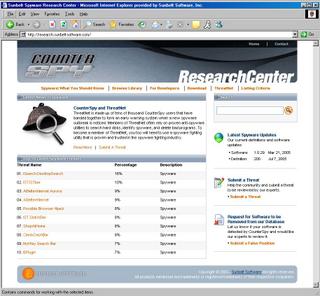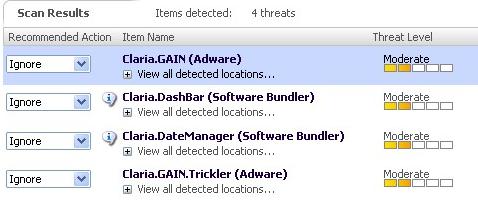CNET writes about the subject of adware vendors trying to clean up their act. They mention WhenU.
Even though we tend to be fairly grumpy and cynical about adware on this blog, we have noticed that WhenU has vastly improved their practices from a year ago, and hats off to Bill Day (formerly the CEO of About.com brought in to clean up WhenU). We informally vote them as “most improved adware company in the last 12 months”.
If only some of the other adware vendors like Claria, 180 solutions and Direct Revenue were improving at the same rate. (This doesn’t mean we are necessarily pointing out the practices of any specific adware vendor like Claria, 180 solutions and Direct Revenue , it’s just a general statement.)
And no, we are not removing WhenU from our database. I just felt in the interest of fairness that we should point out that their improvements are a Good Thing for the consumer.
Alex Eckelberry




